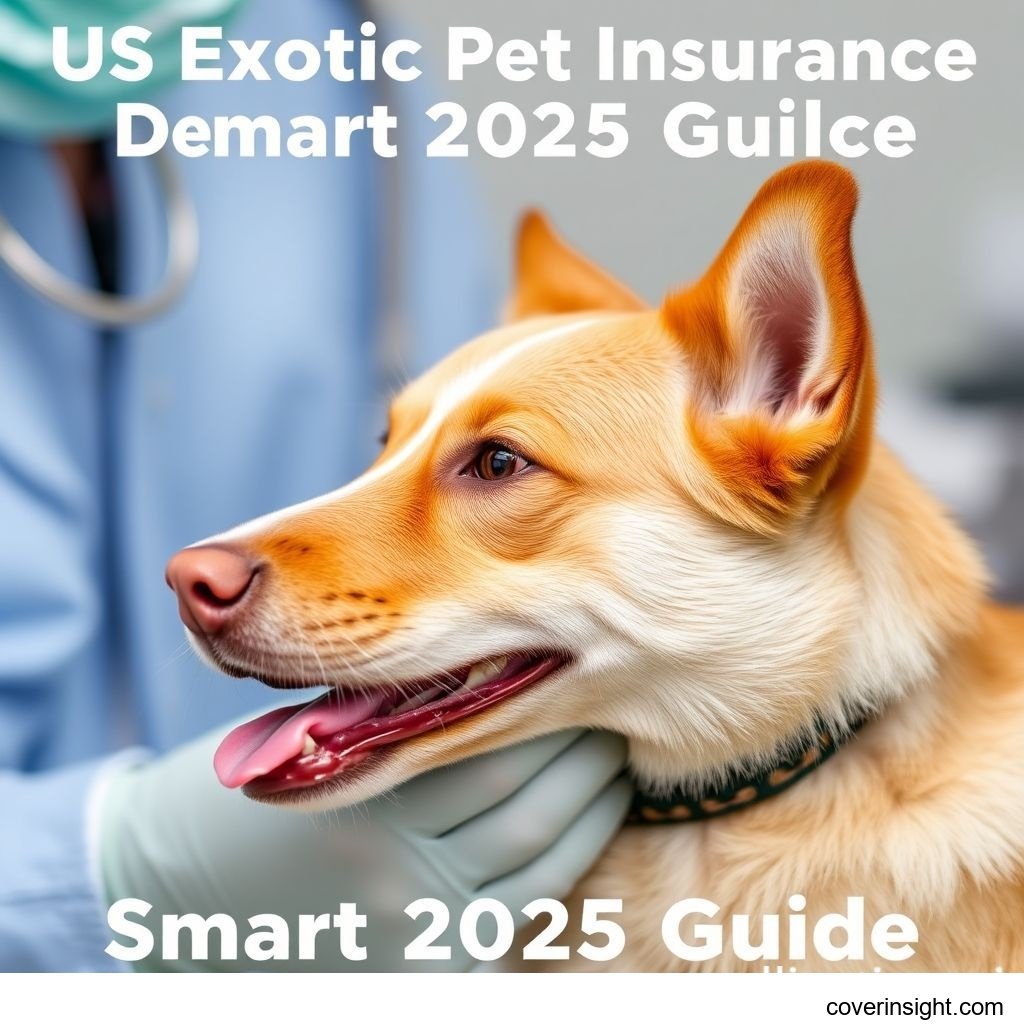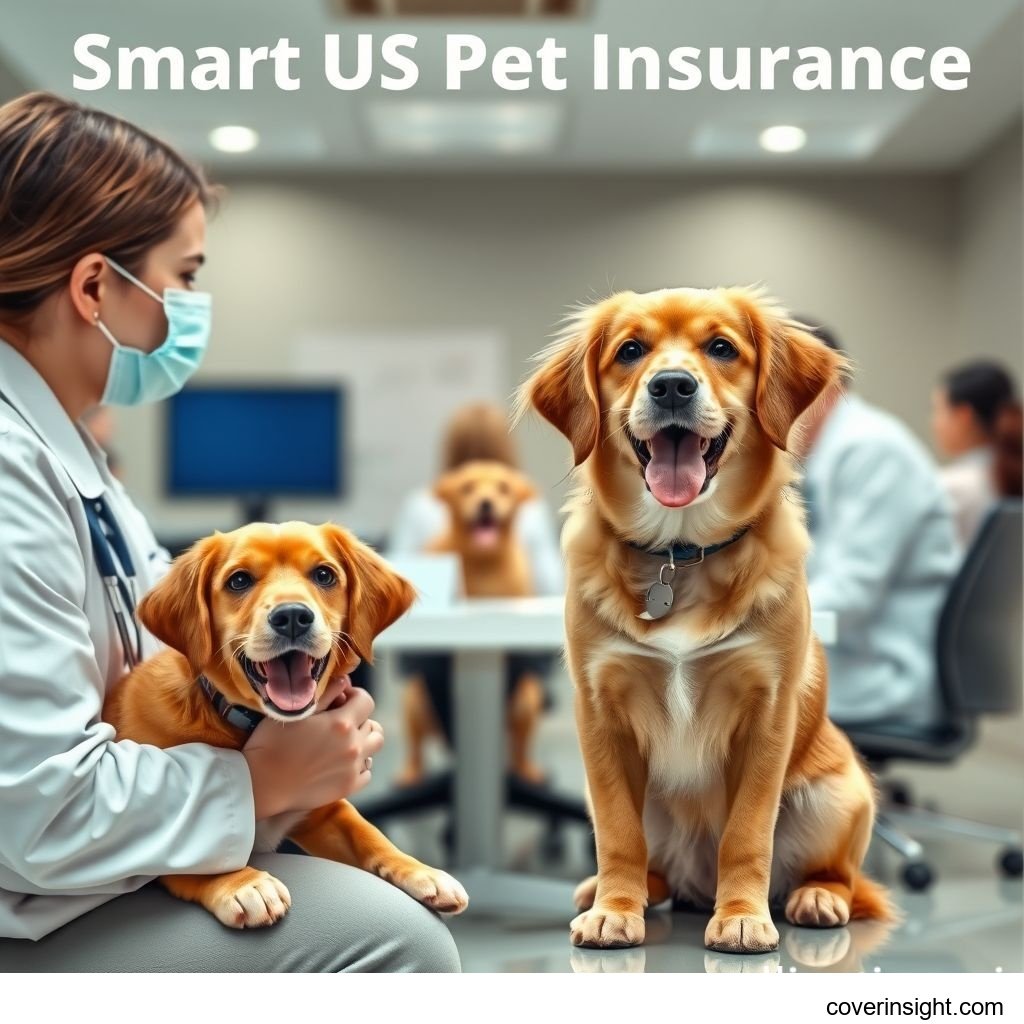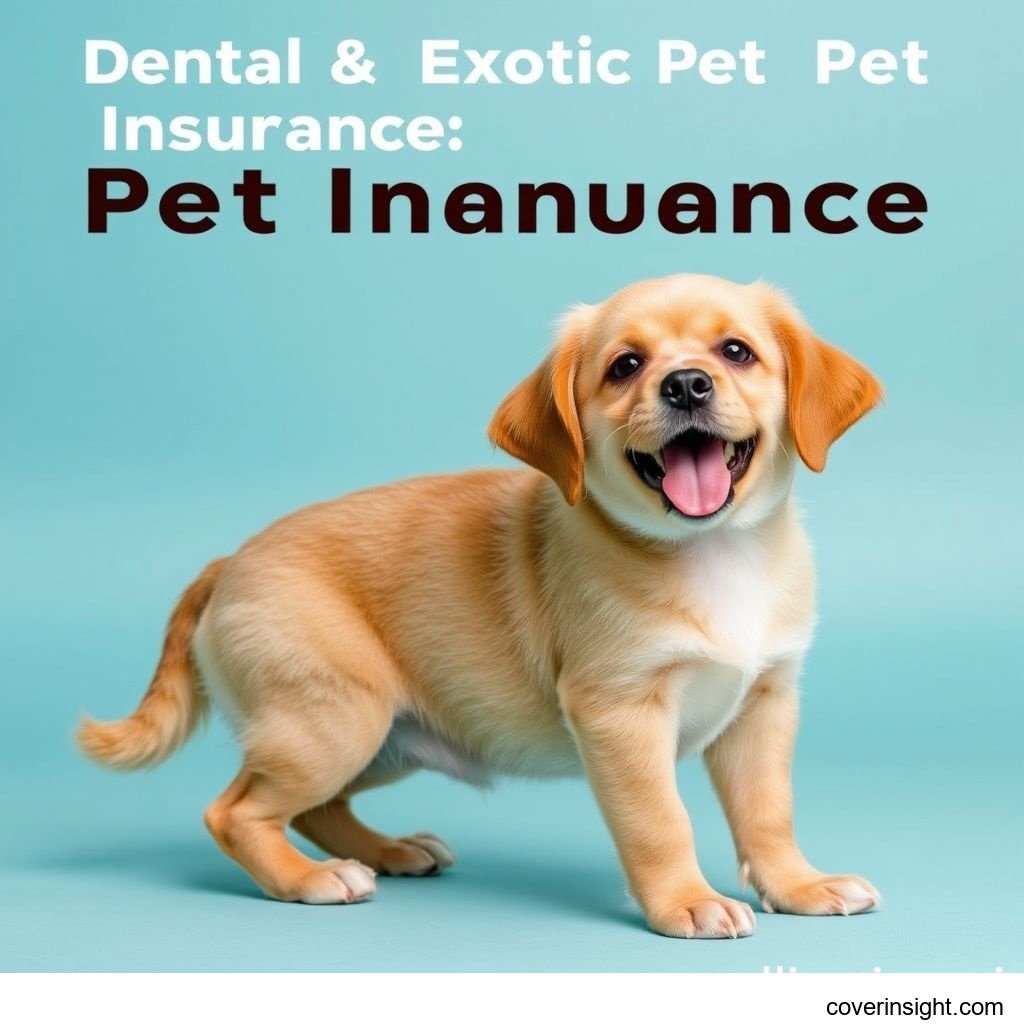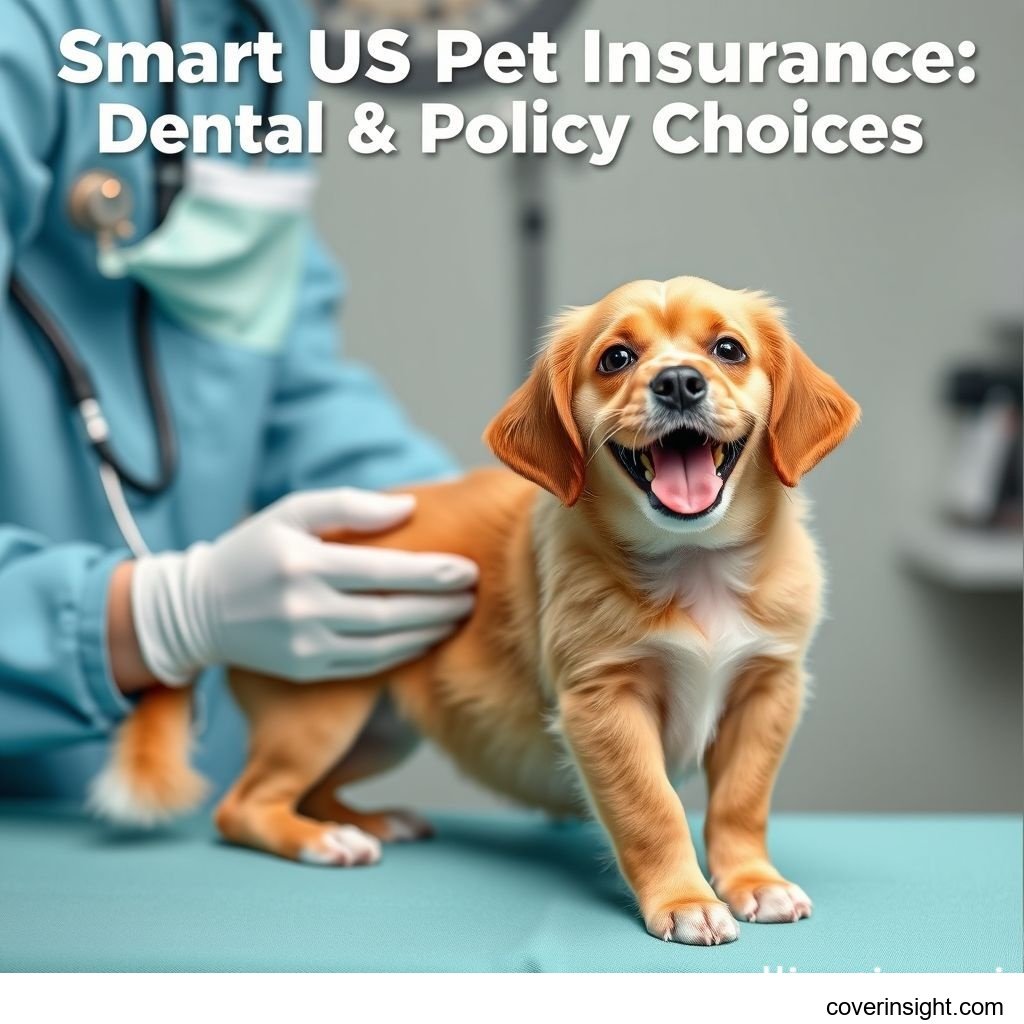Introduction
In the evolving landscape of pet care, ensuring our beloved companions receive top-notch medical attention is paramount. As we look towards 2025, the conversation around pet insurance in the US has broadened significantly, moving beyond just cats and dogs to embrace the unique needs of exotic pets. Dental health, often an overlooked aspect, is critical for the overall well-being of these unique creatures, from parrots with overgrown beaks to chinchillas with malocclusion. Just like humans, exotic pets can suffer from a myriad of painful and debilitating dental issues that, if left untreated, can lead to severe health complications and hefty veterinary bills. Dental care pet insurance specifically tailored for exotic animals offers a vital safety net, providing financial relief and peace of mind when unexpected dental emergencies or routine care arise.
Coverage Details
Navigating the specifics of dental insurance for exotic pets can feel like deciphering a secret code, but understanding what's typically included and excluded is your first step to making an informed decision.
What’s Included
Most comprehensive exotic pet dental insurance plans aim to cover a range of necessary procedures designed to maintain or restore your pet's oral health. This often includes:
-
Routine Dental Cleanings: Crucial for preventing plaque and tartar buildup, especially for species prone to dental issues.
-
Dental X-rays: Essential for diagnosing underlying issues like root abscesses, bone loss, or unerupted teeth that aren't visible externally.
-
Extractions: For diseased, fractured, or problematic teeth that pose a risk to the pet's health.
-
Treatment for Gum Disease: Including gingivitis and periodontitis.
-
Fractured Tooth Repair: Depending on the severity and nature of the break.
-
Oral Surgeries: Such as those for tumors or cysts in the mouth.
-
Anesthesia and Sedation: A necessary component for most dental procedures in exotic pets, given their sensitivity and the need for precision.
-
Pain Medication and Antibiotics: Post-procedure care is often covered.
Consider "Pip," a pet sugar glider in Arizona who developed severe dental disease requiring multiple extractions and ongoing care. Without insurance, Pip's owner faced bills totaling over $3,000 for consultations, X-rays, and surgical procedures. Had they invested in a robust dental plan, a significant portion of this unexpected cost could have been alleviated.
Common Exclusions
While policies strive to be comprehensive, there are typical exclusions to be aware of:
-
Pre-existing Conditions: Any dental issue diagnosed or showing symptoms before the policy's effective date or during a waiting period. This is a standard practice across the insurance industry.
-
Cosmetic Procedures: Treatments solely for aesthetic purposes without a medical necessity.
-
Experimental Treatments: Any procedure not widely accepted as veterinary standard.
-
Non-Dental Illnesses: Conditions that originate elsewhere in the body but might manifest orally.
-
Waiting Periods: Most policies have an initial waiting period (e.g., 14-30 days) before dental coverage kicks in. This prevents immediate claims for pre-existing conditions.
-
Wellness or Preventative Care Outside of Routine Cleaning: Some plans might require a specific "wellness add-on" for broader preventative care.
Cost Analysis
The cost of dental care pet insurance for exotic animals can vary widely, much like their diverse species. Understanding what drives these premiums and how to save a few bucks is key to making a smart investment.
Price Factors
Several elements come into play when calculating your annual premium:
-
Species and Breed: Some exotic species are inherently more prone to dental issues (e.g., rabbits and chinchillas with continuously growing teeth, or certain bird species). A parrot might have different dental needs than a bearded dragon.
-
Age of Pet: Older pets generally have higher premiums due to an increased likelihood of age-related dental problems.
-
Geographic Location: Veterinary costs vary significantly by region and state within the US. For instance, vet services in urban centers tend to be pricier than in rural areas.
-
Deductible: The amount you pay out-of-pocket before your insurance kicks in. A higher deductible typically means a lower monthly premium.
-
Reimbursement Level: The percentage of covered costs the insurer pays back (e.g., 70%, 80%, or 90%). Higher reimbursement levels mean higher premiums.
-
Annual Limit: The maximum amount the policy will pay out in a year. Policies with higher annual limits usually cost more.
-
Policy Type: Accident-only, illness-only, or comprehensive plans will have different price points. A dental-specific rider or a comprehensive plan with dental benefits will naturally be more expensive than basic accident coverage.
Saving Tips
Don't let the potential cost deter you; there are smart ways to make exotic pet dental insurance more affordable:
-
Choose a Higher Deductible: If you're comfortable paying more upfront in case of a claim, you can significantly lower your monthly premium.
-
Opt for a Lower Reimbursement Level: Accepting a 70% reimbursement instead of 90% can reduce costs.
-
Multi-Pet Discounts: Many insurers offer discounts if you enroll multiple pets, even if they are different exotic species.
-
Annual vs. Monthly Payments: Paying your premium annually can sometimes save you a small percentage compared to monthly installments.
-
Wellness Riders: While they increase the initial cost, a wellness rider that covers routine cleanings can save you money in the long run by preventing more serious issues. A stitch in time often saves nine!
-
Shop Around: Compare quotes from multiple providers. The National Association of Insurance Commissioners offers valuable resources for understanding insurance and finding regulated providers. Additionally, your State Insurance Departments can provide state-specific information and consumer guides.
FAQs
How much does dental care pet insurance cost?
The cost varies widely, typically ranging from $20 to $60 per month for exotic pets, depending on factors like species, age, location, deductible, and reimbursement level. Some specialized or older exotic pets could see higher premiums.
What affects premiums?
As discussed, key factors include your pet's species, age, and location, as well as the policy's deductible, reimbursement level, and annual limit. More comprehensive plans or those with lower out-of-pocket costs will have higher premiums.
Is it mandatory?
No, pet insurance for exotic pets is not mandatory in the US. However, given the specialized and often expensive veterinary care exotic animals require, especially for dental issues, it's a wise investment that can prevent you from breaking the bank. For a broader understanding of insurance options, check out Healthcare.gov to see how various insurance models operate, even if not directly for pets.
How to choose?
To choose the best plan, research reputable providers specializing in exotic pet insurance. Compare coverage details (what's included vs. excluded), cost factors (premiums, deductibles, reimbursement rates), customer reviews, and financial stability of the insurer. Pay close attention to waiting periods and pre-existing condition clauses. Consider your pet's specific species and its common health risks. For more general advice on navigating insurance options, consider exploring resources like Insurance Resources Global and US Insurance Home (placeholder links).
Consequences of no coverage?
Without dental coverage, you are solely responsible for the full cost of all dental examinations, cleanings, procedures, and medications. This can lead to significant out-of-pocket expenses, potentially forcing difficult decisions about your pet's care if costs become prohibitive. Dental issues left untreated can cause severe pain, infection, organ damage, and significantly shorten your exotic pet's lifespan.
Author Insight & Experience:
Based on my experience living in the US and seeing the dedication of exotic pet owners, I’ve noticed a critical trend: while many are prepared for routine veterinary visits, the sticker shock of emergency or specialized care, especially dental, can be truly disheartening. Exotic pet dentistry isn't cheap; it requires specialized equipment, knowledge, and often general anesthesia. I've personally seen cases where owners, despite their love for their unique companions, have struggled to afford necessary treatments for conditions like severe malocclusion in a rabbit or a fractured beak in a cockatoo. Having dental insurance in place isn't just about financial prudence; it's about ensuring your beloved exotic pet receives the prompt, essential care they deserve without you having to compromise or make heartbreaking choices due to cost. It truly offers a peace of mind that's invaluable.









Comments